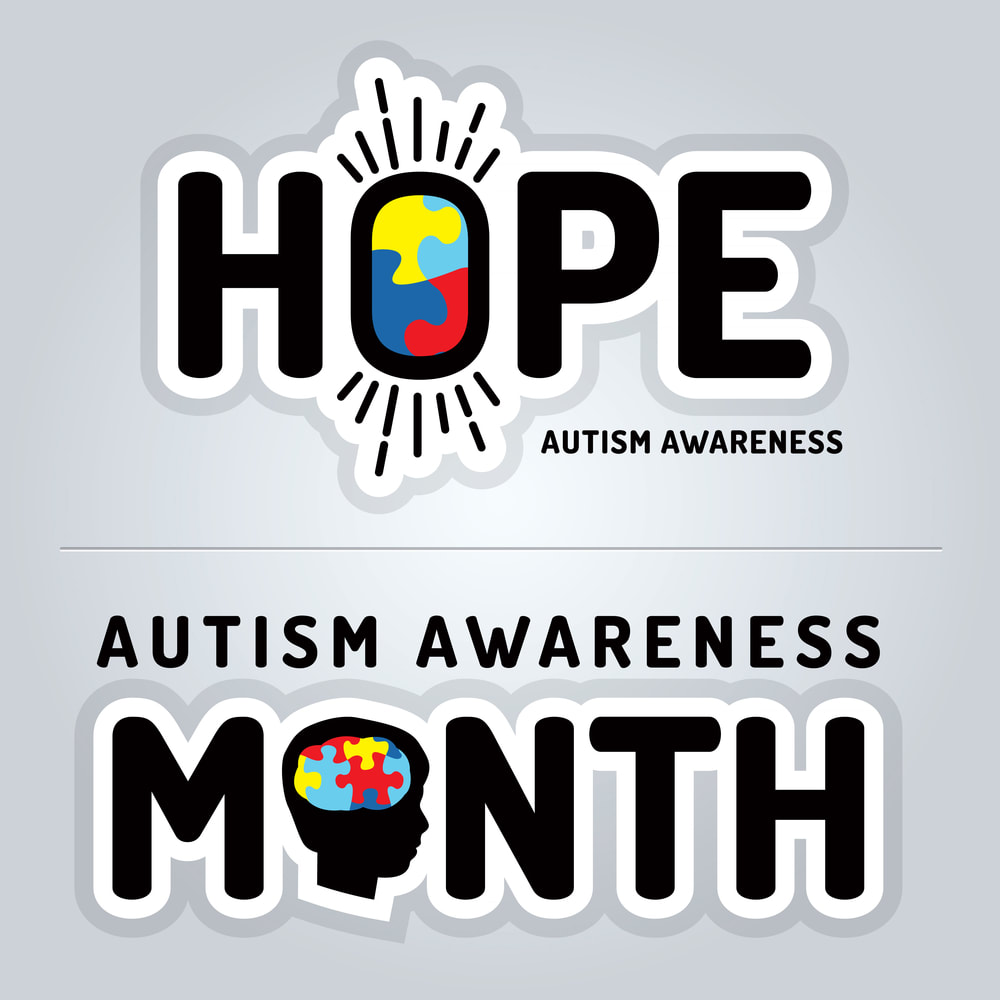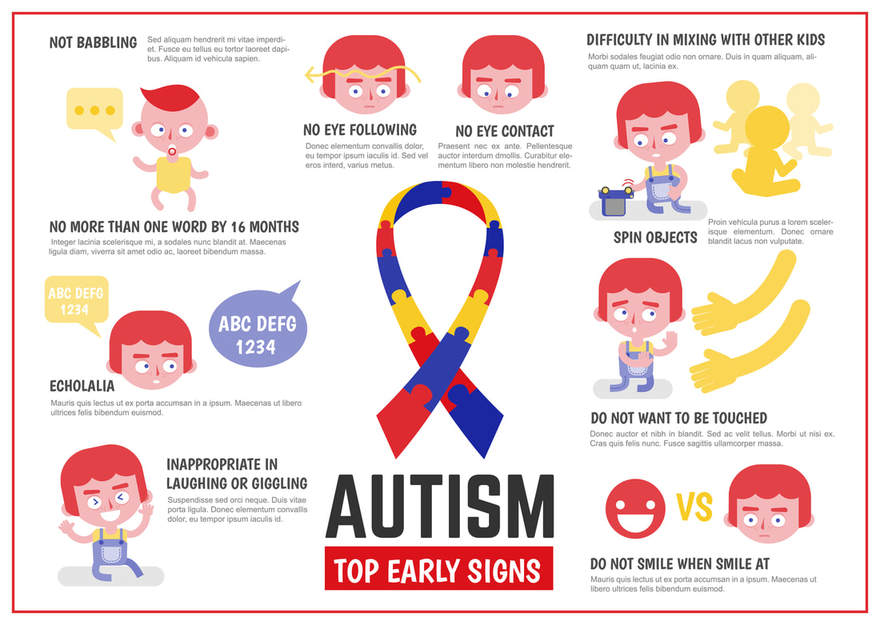what is autisme?
|
- HOME - START HERE
- CONSULTATION SERVICES
- 911 EMERGENCY
- EBOOKS
- Store
- DOSAGES
- HOW TO TAKE
- ANTI-AGING
- CBD AND NIGELLA SATIVA
- RESEARCH SHOWS THAT CANCER RATES WILL RISE DRASTICALLY OVER THE COMING YEARS
- FIBRO CATEGORY
- HERPES CATEGORY
- HIV- Category
- Honey - Category
- Pets
- Top 20 Reasons to use Black Cumin Oil and Capsules
- STROKES CATEGORY
- WEIGHT LOSS CATEGORY
- ANSWER THE QUESTIONS
- Articles
- BLACK SEED OIL IS BETTER THAN TYLENOL FOR ARTHRITIS RELIEF
- Migraines - Headaches - 12 Remedies with Pictures
- My Protocol for Dementia Recovery
- PCOS and Nigella Sativa
- PRIVACY POLICY - GDPR COMPLIANT
- My Team
- About
- Healthy Articles
- Nigella Sativa Online Courses - Part 1
- Childhood Epilepsy
- Natural Diuretics
- Healing Effect on Sarcoidosis
- Nigella Sativa Respiratory Illness
- Cardiovascular Disease
- Depression and COVID19
- 12
- How to Use Nigella Sativa
- How Contagious is Leprosy
- Supporting Human Health - The Immunomodulator
- Nigella Sativa Cancer Ebook
- OK, I am a Muslim - Now What?
- Everything You Ever Wanted to Know About Black Seeds
- Islam Cancer Ebook
- DONATION
- Nigella sativa is an safe alternative Non-Hodgkin’s treatment option
- RESEARCH ON WHY YOU SHOULD HEAT NIGELLA SATIVA SEEDS
- Black Seed Cuisine Ebook
- IS THERE A CURE FOR LUPUS - NATURAL SOLUTIONS
- Black Seed Oil
- TURMERIC DETOX AND MORE
- MASTERS OF HEALING
- PAYMENT RECEIVED
- Non-clickable Page
- IRRITABLE BOWEL SYNDROME - NATURAL SOLUTIONS
- MY CANCER COLLECTION
- CONTACT
EXACTLY WHAT IS AUTISM ALL ABOUT
WRITTEN BY DR. NITA SHARMA DAS, PHD, ND, PHDHM, B PHARM. JULY 22, 2018
THIS ARTICLE IS COPYRIGHTED FOR NIGELLASATIVACENTER.COM ONLY. ALL RIGHTS RESERVED.
|
What is Autism?
Autism is a behavioral disorder associated with neurological impairment. It has a major negative impact in the development of a child. The symptoms of autism starts early and stays lifelong. There are wide range of symptoms which are termed as 'Autism spectrum disorder'.[1] The combination of genetic vulnerability and environmental aspects influence underlying contributing biomedical factors, which negatively affects brain functioning. There are large number of extrinsic biochemical and systemic factors that |
secondarily affect brain functioning. [2] Additionally, multiple pathophysiological alterations may also be responsible for the disease. [2] However, exact etiology of autism is still unclear. [3]
There are several neuropathological conditions associated with autism, like epilepsy, gastrointestinal abnormalities, microbiota imbalance in the gut environment, and immune system abnormalities. These are further considered as environmental factors.
These can lead to complications like neuro-inflammation, neuro-immune abnormalities, autoimmune diseases, and neurological and psychiatric disorders. Presence of maternal autoimmune disease and infections can also effect embryonic tissue damage and exaggerate genetic disorder in autism affected individuals. [4]
There are several neuropathological conditions associated with autism, like epilepsy, gastrointestinal abnormalities, microbiota imbalance in the gut environment, and immune system abnormalities. These are further considered as environmental factors.
These can lead to complications like neuro-inflammation, neuro-immune abnormalities, autoimmune diseases, and neurological and psychiatric disorders. Presence of maternal autoimmune disease and infections can also effect embryonic tissue damage and exaggerate genetic disorder in autism affected individuals. [4]
Autism Symptoms
The range of symptoms associated with autism are mainly based on educational and behavioral disorders. These symptoms are characterized by impaired social skills which become a challenge in social interactions, repetitive speech and a behavioral approach, and nonverbal communication.
The affected individuals also possess unique strengths and differences. Association with gastrointestinal abnormalities may cause abdominal pain, diarrhea, constipation, gastroesophageal reflux, and GI infections. It has been found that deficiency of brain-derived neurotrophic factor (BDNF) occurs in later half of life. [4]The deficiency of BDNF causes major depression and memory impairment.
The early sign and symptoms usually appear at 2 to 3 years of age. Almost one-third of autism affected individuals remain nonverbal, while one-third of autism affected individuals have an intellectual disability.[5]
The US Centers for Disease Control and Prevention (US CDC) in their 2008 data revealed that 1 in 88 children in the United States is affected with autism which shows the prevalence of the disease. [2]
The male children have higher propensity to develop Autism than female. It has been found that immune activation at the early maternal phase may influence prenatal stress, which is more intense in affecting boys due to a vulnerable genotype. Moreover, the placenta also plays an important role in sex-specific responses to environmental factors and disease states. These factors may influence the gender-specific incidental difference. [4]
The range of symptoms associated with autism are mainly based on educational and behavioral disorders. These symptoms are characterized by impaired social skills which become a challenge in social interactions, repetitive speech and a behavioral approach, and nonverbal communication.
The affected individuals also possess unique strengths and differences. Association with gastrointestinal abnormalities may cause abdominal pain, diarrhea, constipation, gastroesophageal reflux, and GI infections. It has been found that deficiency of brain-derived neurotrophic factor (BDNF) occurs in later half of life. [4]The deficiency of BDNF causes major depression and memory impairment.
The early sign and symptoms usually appear at 2 to 3 years of age. Almost one-third of autism affected individuals remain nonverbal, while one-third of autism affected individuals have an intellectual disability.[5]
The US Centers for Disease Control and Prevention (US CDC) in their 2008 data revealed that 1 in 88 children in the United States is affected with autism which shows the prevalence of the disease. [2]
The male children have higher propensity to develop Autism than female. It has been found that immune activation at the early maternal phase may influence prenatal stress, which is more intense in affecting boys due to a vulnerable genotype. Moreover, the placenta also plays an important role in sex-specific responses to environmental factors and disease states. These factors may influence the gender-specific incidental difference. [4]
Alternative Therapeutic Approach
There is a significant deficiency of functional optimality such as vitamins, minerals, omega-3 fatty acids, and clean healthy food for individual's body and brain development. Therefore, functional medicine plays a vital role in correcting underlying contributing biomedical factors.
The interference of some internal or external factors from environmental toxins, cytokines, and histamine, may cause the development of the disease. The increased synthesis and accumulation of free radicals present in the affected individual's body and brain may also influence autism.
Therefore, functional medicines which are also termed as “complementary" or "alternative treatment" have a vital role to treat autism. The peer-reviewed literature and published articles also support the application of functional medicines in the treatment of Autism. [2]
Read also: Everything You Need to Know About CBD Oil and Autism
There is a significant deficiency of functional optimality such as vitamins, minerals, omega-3 fatty acids, and clean healthy food for individual's body and brain development. Therefore, functional medicine plays a vital role in correcting underlying contributing biomedical factors.
The interference of some internal or external factors from environmental toxins, cytokines, and histamine, may cause the development of the disease. The increased synthesis and accumulation of free radicals present in the affected individual's body and brain may also influence autism.
Therefore, functional medicines which are also termed as “complementary" or "alternative treatment" have a vital role to treat autism. The peer-reviewed literature and published articles also support the application of functional medicines in the treatment of Autism. [2]
Read also: Everything You Need to Know About CBD Oil and Autism
|
Natural treatments with diet
Researchers found that some nutritional deficiencies are also associated with autism. Therefore, nutrient-rich diet is essential to support the optimal physiological functioning. Autism affected individuals require some of the essential nutrients in higher quantity than the normal individuals, which can only be achieved through dietary supplements. Vitamins
Minerals A considerable deficiency of certain essential minerals are seen in autism affected individuals. Zinc and Magnesium deficiencies are common in autism affected individuals. There are multiple factors that influence these deficiencies, like antacids can cause suppression of mineral absorption; inadequate animal protein intake, carbohydrate-rich diet etc.
Omega-3 Fatty Acids Essential fatty acids like omega-3 fatty acids, particularly eicosapentaenoic acid (EPA) and docosahexaenoic acid (DHA) provide several health benefits due to its anti-inflammatory effect, which improve skin and intestinal health. It further develops cognitive functioning and prevent vision disorder. Omega-3 fatty acids supplement is necessary because body cannot synthesize essential fatty acids. [2] Fish oil is one of the abundant source of omega-3 fatty acids and is easily accessible. The experts often recommended fish oil to autism affected patient to fulfill the dietary need of omega-3 fatty acids. The intake of sufficient omega-3 fatty acids can help to improve socialization of autism affected individuals by soothing hyperactive behaviors and controlling disruptive behaviors.[6] |
|
|
|
Melatonin
Pineal gland of our body naturally secretes melatonin hormone at night for completing the sleep cycle and preventing insomnia. Autism people often have sleep disturbance, which irritate their mood. Some natural edible foods which are rich source of melatonin can treat sleep disorder in autism patients.
Autism affected individuals can have some plant-based foods like, grapes, cherries, strawberries, tomatoes, peppers, and non-glutinous black rice, which are rich sources of melatonin. Some medicinal herbs like St. John’s Wort, Huang-qin can also be used as complementary medicines, as they contain higher quantity of melatonin. [6,7]
Probiotics
Imbalance in intestinal microbiota and “leaky gut” condition are two important biomedical contributing factors in Autism development. [2] Inclusion of probiotics in dietary regimen of autism affected individuals help to maintain the intestinal microbiota by stimulating the growth of 'friendly bacteria' in the gut wall.
This can provide efficient absorption of nutrients and also protect digestive disorder by preventing intestinal infections. Yogurt is a natural source of probiotics, however, a probiotic supplement can also be prescribed for autism patients to maintain the healthier gastrointestinal system. [7]
Pineal gland of our body naturally secretes melatonin hormone at night for completing the sleep cycle and preventing insomnia. Autism people often have sleep disturbance, which irritate their mood. Some natural edible foods which are rich source of melatonin can treat sleep disorder in autism patients.
Autism affected individuals can have some plant-based foods like, grapes, cherries, strawberries, tomatoes, peppers, and non-glutinous black rice, which are rich sources of melatonin. Some medicinal herbs like St. John’s Wort, Huang-qin can also be used as complementary medicines, as they contain higher quantity of melatonin. [6,7]
Probiotics
Imbalance in intestinal microbiota and “leaky gut” condition are two important biomedical contributing factors in Autism development. [2] Inclusion of probiotics in dietary regimen of autism affected individuals help to maintain the intestinal microbiota by stimulating the growth of 'friendly bacteria' in the gut wall.
This can provide efficient absorption of nutrients and also protect digestive disorder by preventing intestinal infections. Yogurt is a natural source of probiotics, however, a probiotic supplement can also be prescribed for autism patients to maintain the healthier gastrointestinal system. [7]
Nigella sativa is a natural therapeutic agent for treating Autism
An animal study showed that Nigella sativa has the potential to improve neuronal damage and help in reviving by improving aminergic, cholinergic and purinergic neurotransmissions.The treatment with Nigella sativa oil improves ATP synthesis and act as a cholinesterase by improving the activities of different neurotransmitters like acetyl cholinesterase, butryl cholinesterase, ectonucleotidase, lactate dehydrogenase and monoamine oxidase. [8]
The potent antioxidant property of Nigella sativa helps to prevent the oxidative stress-induced neuronal damage. The neuroprotective effect, antidepressant property, anti-anxiety effect, improvement of learning ability and memory power can be enhanced due to the presence of bioactive ingredients in Nigella sativa seeds.[9] Nigella sativa seeds and oil, both are available as dietary supplement and is effective to prevent autism. It also provide better treatment outcome to autistic patients.
There are several ways to supplement Nigella sativa. Nigella sativa is commonly known as black seed and easily available in general retail stores. However, for pharmacological purposes, it is suggested to select organic Nigella sativa oil or crude Nigella sativa seeds from authentic supplier to obtain best treatment outcome. Following are some convenient way to add Nigella sativa for dietary purposes:
An animal study showed that Nigella sativa has the potential to improve neuronal damage and help in reviving by improving aminergic, cholinergic and purinergic neurotransmissions.The treatment with Nigella sativa oil improves ATP synthesis and act as a cholinesterase by improving the activities of different neurotransmitters like acetyl cholinesterase, butryl cholinesterase, ectonucleotidase, lactate dehydrogenase and monoamine oxidase. [8]
The potent antioxidant property of Nigella sativa helps to prevent the oxidative stress-induced neuronal damage. The neuroprotective effect, antidepressant property, anti-anxiety effect, improvement of learning ability and memory power can be enhanced due to the presence of bioactive ingredients in Nigella sativa seeds.[9] Nigella sativa seeds and oil, both are available as dietary supplement and is effective to prevent autism. It also provide better treatment outcome to autistic patients.
There are several ways to supplement Nigella sativa. Nigella sativa is commonly known as black seed and easily available in general retail stores. However, for pharmacological purposes, it is suggested to select organic Nigella sativa oil or crude Nigella sativa seeds from authentic supplier to obtain best treatment outcome. Following are some convenient way to add Nigella sativa for dietary purposes:
- Directly consume Nigella sativa seeds, but practically it is difficult, as the taste of the seeds is not very much palatable.
- Mix Nigella sativa oil or seeds with honey to mask the pungent taste of this herbal formulation;
- Add a teaspoonful of Nigella sativa seeds in boiled water. Keep for a certain period and then strain the extract and drink the preparation.
- Add Nigella sativa oil in warm milk and drink it, or add Nigella sativa seeds in warm milk and keep on flame for a while for boiling. Then cool it and drink it.
- Take powder of Nigella seeds with milk or water.
- Add Nigella seeds or powder in different recipes. [10]
References:
- 1.Autism Spectrum Disorder. Online available at https://medlineplus.gov/autismspectrumdisorder.html
- Pamela J. Compart .The Pathophysiology of Autism. Glob Adv Health Med. 2013 Nov; 2(6): 32–37. Published online 2013 Nov 1. doi: 10.7453/gahmj.2013.092. Online available at https://www.ncbi.nlm.nih.gov/pmc/articles/PMC3865380/
- SARAH PENDERGRASS, SANTHOSH GIRIRAJAN, SCOTT SELLECK. UNCOVERING THE ETIOLOGY OF AUTISM SPECTRUM DISORDERS: GENOMICS, BIOINFORMATICS, ENVIRONMENT, DATA COLLECTION AND EXPLORATION, AND FUTURE POSSIBILITIES. Pac SympBiocomput. Author manuscript; available in PMC 2015 Jan 1.Published in final edited form as: Pac SympBiocomput. 2014 : 422–426. Online available at https://www.ncbi.nlm.nih.gov/pmc/articles/PMC3999434/
- MohtashemSamsam, RahelehAhangari, Saleh A Naser. Pathophysiology of autism spectrum disorders: Revisiting gastrointestinal involvement and immune imbalance World J Gastroenterol. 2014 Aug 7; 20(29): 9942–9951. Published online 2014 Aug 7. doi: 10.3748/wjg.v20.i29.9942. Online available at https://www.ncbi.nlm.nih.gov/pmc/articles/PMC4123375/
- What Is Autism? Online available at https://www.autismspeaks.org/what-autism
- 9 Beneficial Home Remedies For Autism. Online available at https://www.organicfacts.net/autism.html
- Xiao Meng, Ya Li, Sha Li, Yue Zhou, Ren-You Gan, Dong-Ping Xu, Hua-Bin Li . Dietary Sources and Bioactivities of Melatonin . Nutrients. 2017 Apr; 9(4): 367. Published online 2017 Apr 7. doi: 10.3390/nu9040367. Online available at https://www.ncbi.nlm.nih.gov/pmc/articles/PMC5409706/
- Jacob K. Akintunde, C. Abigail Irechukwu. Differential protection of black-seed oil on econucleotidase, cholinesterases and aminergic catabolizing enzyme in haloperidol-induced neuronal damage of male rats. Ther Adv Drug Saf. 2016 Aug; 7(4): 132–146. Published online 2016 Jul 22. doi: 10.1177/2042098616656812. Online available at https://www.ncbi.nlm.nih.gov/pmc/articles/PMC4959635/
- Randhawa AM, Alenazi AS (2016) Neuropsychiatric Effects of Nigella sativa (Black Seed) – A Review. AlternIntegr Med 5:209. doi: 10.4172/2327-5162.1000209. Online available at https://www.omicsonline.org/open-access/neuropsychiatric-effects-of-nigella-sativa-black-seed--a-review-2327-5162-1000209.php?aid=67144
- Black seed oil and Autism. https://dailyhealthyremedies.wordpress.com/tag/autism/
|
COME JOIN MY MEMBERSHIP GROUP - DO YOU MISS ME? THE COST IS $9.95 PER MONTH. LEARN THE DEEP SECRETS OF BEING WELL.
PAYMENT LINK HERE |
STORE TESTIMONY CONTACT EBOOKS ABOUT PAGE PRIVATE POLICYAmazon Affiliate Disclosure
https://www.nigellasativacenter.com is a participant in the Amazon Services LLC Associates Program, an affiliate advertising program designed to provide a means for website owners to earn advertising fees by advertising and linking to amazon(.com, .co.uk, .ca etc) and any other website that may be affiliated with Amazon Service LLC Associates Program. “Amazon and the Amazon logo are trademarks of Amazon.com, Inc. or its affiliates.” Please note I am also an affiliate for Mountain Rose Herbs, , Shareasale and More. Please see our full disclosure here: Disclaimer: The information on this page and on this website has not been evaluated by the FDA. We do not diagnose, treat, cure or prevent illness or disease - instead, we try to help people learn how to do so themselves. Anyone who believes they have a serious medical condition or health issue should seek diagnoses from a qualified medical professional before making any decisions on how to best address their health. Furthermore, anyone contemplating using any products or information on this website must accept such use as experimental and voluntary. No claims are made regarding the therapeutic use of the products or information on this website and all products featured or sold on this website must be considered nutritional supplements only. -
Copyright Protected - Nigella Sativa.com - 2022-2025 - All Rights Reserved - Any infringe on our copyright will be prosecuted to the fullest extent of the law.
|
OWNER: SAMANTHA DAVIS
WEBSITE: BASED ON EVIDENCE ADDRESS: PO BOX 437, ZARGA, JORDAN 13110 PHONE: +962-53923471 HOURS: 5PM - 12AM - NY;TIME EMAIL: naturalliving [email protected] CONSULTATION FEES 1 STOP CENTER IS BASED ON ALL MODALITIES OF HEALING, NOT JUST NIGELLA SATIVA |
- HOME - START HERE
- CONSULTATION SERVICES
- 911 EMERGENCY
- EBOOKS
- Store
- DOSAGES
- HOW TO TAKE
- ANTI-AGING
- CBD AND NIGELLA SATIVA
- RESEARCH SHOWS THAT CANCER RATES WILL RISE DRASTICALLY OVER THE COMING YEARS
- FIBRO CATEGORY
- HERPES CATEGORY
- HIV- Category
- Honey - Category
- Pets
- Top 20 Reasons to use Black Cumin Oil and Capsules
- STROKES CATEGORY
- WEIGHT LOSS CATEGORY
- ANSWER THE QUESTIONS
- Articles
- BLACK SEED OIL IS BETTER THAN TYLENOL FOR ARTHRITIS RELIEF
- Migraines - Headaches - 12 Remedies with Pictures
- My Protocol for Dementia Recovery
- PCOS and Nigella Sativa
- PRIVACY POLICY - GDPR COMPLIANT
- My Team
- About
- Healthy Articles
- Nigella Sativa Online Courses - Part 1
- Childhood Epilepsy
- Natural Diuretics
- Healing Effect on Sarcoidosis
- Nigella Sativa Respiratory Illness
- Cardiovascular Disease
- Depression and COVID19
- 12
- How to Use Nigella Sativa
- How Contagious is Leprosy
- Supporting Human Health - The Immunomodulator
- Nigella Sativa Cancer Ebook
- OK, I am a Muslim - Now What?
- Everything You Ever Wanted to Know About Black Seeds
- Islam Cancer Ebook
- DONATION
- Nigella sativa is an safe alternative Non-Hodgkin’s treatment option
- RESEARCH ON WHY YOU SHOULD HEAT NIGELLA SATIVA SEEDS
- Black Seed Cuisine Ebook
- IS THERE A CURE FOR LUPUS - NATURAL SOLUTIONS
- Black Seed Oil
- TURMERIC DETOX AND MORE
- MASTERS OF HEALING
- PAYMENT RECEIVED
- Non-clickable Page
- IRRITABLE BOWEL SYNDROME - NATURAL SOLUTIONS
- MY CANCER COLLECTION
- CONTACT










